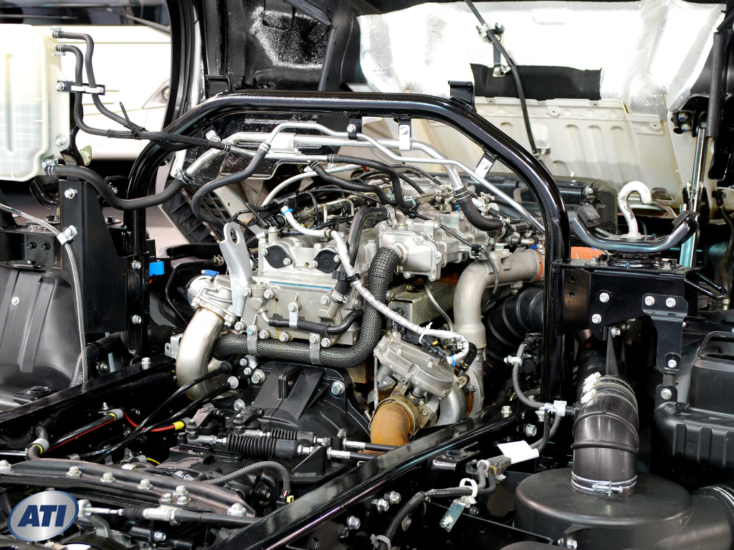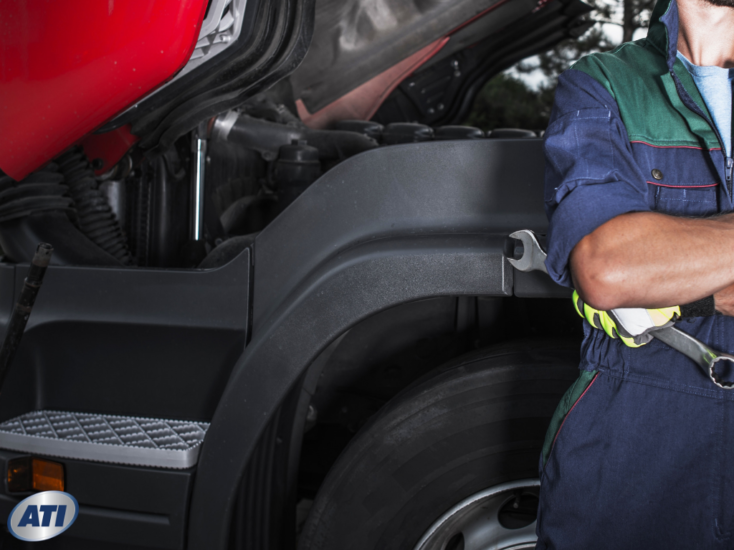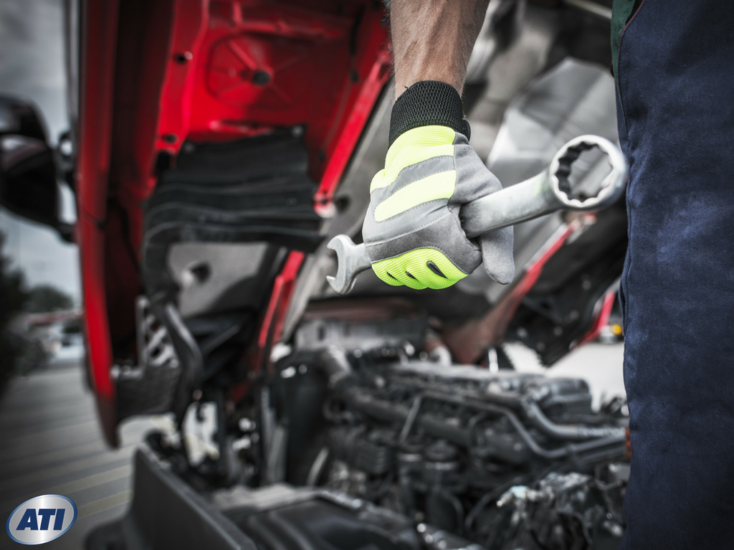Heavy Vehicle Mechanic Classes and Training in Virginia Beach, VA

Skilled heavy vehicle mechanics and those who know how to maintain diesel engines could find themselves in many diverse fields: transportation (buses, diesel engines), farming, railroad, mining, agriculture, and forestry, to name a few.
In our region, this also could include working for military installations, maritime, trucking, and construction firms. If you’ve got an interest in making sure big trucks, tractors, and other heavy equipment stays road worthy so it can do its job, then this may be the right path for you.
The demands of this vocation can be strenuous, both physically and in terms of the critical thinking needed for problem solving. Once you’ve determined you’re a suitable candidate for this field, we’ll discuss the best way to break into it.
Aptitude is Important in this Field
Heavy vehicle mechanics jobs can be physically demanding, requiring strength (ability to lift as much as 100 pounds), dexterity (good hand and eye-hand coordination), and stamina to perform repairs and maintenance. You should be able to climb ladders and to perform tasks holding heavy tools or equipment.
You also need an aptitude for mechanical work, with an ability to figure out and analyze mechanical problems, identifying failing parts and tracking down weaknesses in systems. You should have some basic familiarity with the parts of complex machinery and engines, and know something about the tools that are required to fix them.
A good memory for detail will be helpful, as you will be required to take apart complex equipment, and then put it back together again after replacing or repairing parts as needed.
While generally no more education than a high school diploma is required to enter the field, you are likely to get a better job if you have some skills in math; the ability to read and interpret instructions and diagrams; and the ability to use the internet to perform research and evaluations.
While you might enter the heavy vehicle maintenance industry with nothing more than a high school diploma and learn the ropes as an apprentice, you’ll could get a big step ahead if you gain some sort of vocational training that proves you’re familiar with how big vehicles work and what’s required to repair them.
Training Could Benefit You When You Look for Work
If you feel you have a natural ability for this work and are not intimidated by the size and power of heavy vehicles, you’re ready for the next step, which is enrolling in some type of vocational training.
In general, your training should give you familiarity with some or all of these fields:
- Electronics
- Ability to read blueprints
- Ability to use diagnostic equipment for troubleshooting
- Ability to look at hydraulic, mechanical, and electrical systems to identify malfunctions and problems, and to develop solutions
It’s a fact that, as with everything else in industry, heavy vehicle maintenance is requiring more educated individuals with more advanced training to do the work. It’s no longer just about mechanics; you may also have to be versed in working with sophisticated electronics and digital systems, as technology in the heavy vehicle industry advances.
That’s why, although high school courses in welding, physics, automotive repair, and electronics could give you a good foundation, you will need more.
Most heavy vehicle mechanics will opt for vocational courses in these basic topics to ready themselves for a job in the field:
- Diesel fuel systems
- Heavy vehicle electronics
- Drivelines
- Advanced heavy vehicle systems
- Environmental control systems
- Brakes
- Steering and alignment
- Heavy vehicle electrical and electronics
- Occupational health and safety
Although you will concentrate in a vocational program on industry-specific courses, you can also profit by taking courses that broaden your communication and critical thinking abilities, such as public speaking or speech, technical writing, math, industrial psychology, and computer applications.
Further, if you are interested in advancing in this field to a manager or to even go out on your own as a freelancer or to start your own business, you should take some management and business courses, as well as a course in personnel management.
How Long Will It Take to Earn a Degree?
Length of time it takes to complete a vocational program for heavy duty vehicle mechanics will vary. Typically, your program might last a year and a half to two years. You might attend class four days a week, spending some time in the classroom listening to lectures, and the other time doing hands-on work in a lab setting.
You may be able to enter an apprenticeship program with an employer who will work with you while you get your training, so that you’re gaining experience as you learn. Accelerated programs could help you earn your degree sooner and start looking for work before those in traditional classrooms have finished studying.
Get Going Today!
If you think you’re ready to embark on a career as a heavy vehicle mechanic in the Virginia Beach area, you don’t have to look far for an training program. Contact Advanced Technology Institute about earning an Associate in Occupational Science degree in the Heavy Vehicle Technology program and get started right away.

Industry Knowledge
Welcome to the Advanced Technology Institute's Blog, your resource for industry insights and discussions on technologies shaping the future of automotive, heavy vehicle, hvac, welding, and other related career paths.
Explore how ATI's curriculum and hands-on learning opportunities can propel your career in the tech-driven world.





